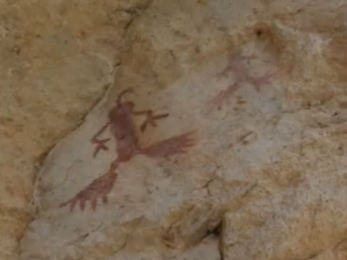http://www.mennoweekly.org/2007/6/25/retracing-great-trek/?page=1
Each spring planting season in Ak Metchet, a Muslim imam comes with villagers and offers prayers for good crops near the site of the cemetery. The prayers are believed to be efficacious because of the memory of the Mennonite settlers who were so successful in agriculture at this place. Tour members noted that the Uzbeks’ positive image of Mennonites stands in contrast to North American accounts that portray Ak Metchet primarily as an episode of failed millennialism.
![group-w[1]](http://pilgrimsonthesilkroad.com/wp-content/uploads/2010/11/group-w1-300x209.jpg) The other article Celeste mentioned is by John Sharpe. John is a history instructor at Hesston College, KS. John has led a number of tours to Khiva and other Mennonite settlements in Central Asia, including Leninpol (Aulie Ata). Here is a link to his article and an excerpt:
The other article Celeste mentioned is by John Sharpe. John is a history instructor at Hesston College, KS. John has led a number of tours to Khiva and other Mennonite settlements in Central Asia, including Leninpol (Aulie Ata). Here is a link to his article and an excerpt:
http://www.mennoweekly.org/2008/7/14/visitors-see-great-trek-central-asian-view/
That Mennonites are remembered in Kyrgyzstan and Uzbekistan seems remarkable. But what the people of Central Asia do not remember is also significant. They do not know about the millennial expectations of Claas Epp and the other Mennonite leaders. For many North Americans, the excesses of millennialism have been the main threads of the Great Trek story.
Both Jim and John are among the historians that are helping reexamine the legacy of the trek to Central Asia. For some North American Mennonites, the trek has been fascinating, painful and sometimes embarrassing. This stands in contrast to the admiration and even reverence they left behind among Muslims who lived alongside them.
The voyages to Khiva continue with John Sharp and his colleagues at Tourmagination. Stay tuned for more trip reperts for those who are making the pilgrimage.

![mosque-w[1]](http://pilgrimsonthesilkroad.com/wp-content/uploads/2010/11/mosque-w1.jpg)

